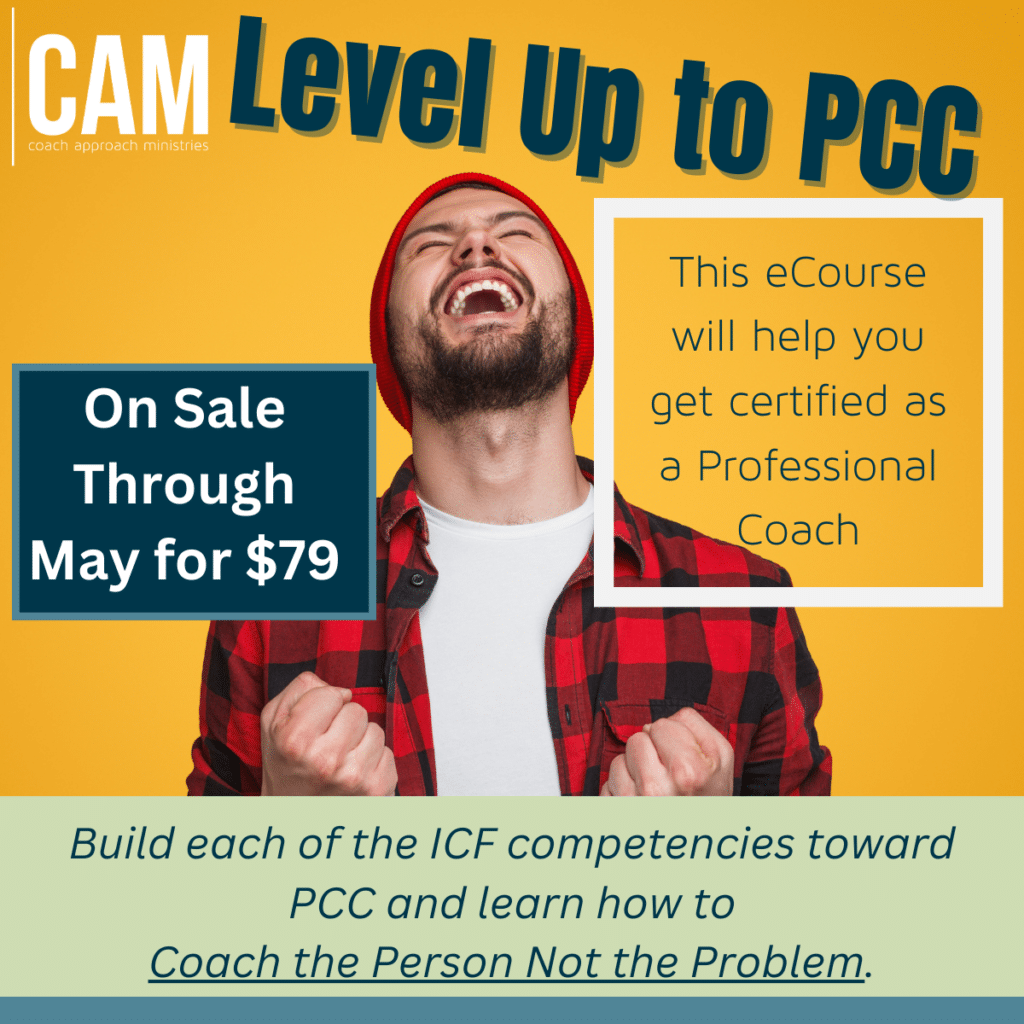 For the last few months I’ve been writing about the relationship between good coaching mindsets and great coaching skillsets. It is my belief that the most effective way to build great coaching skills is to adopt some basic coaching mindsets than can really add power to your coaching conversations and coaching relationships.
For the last few months I’ve been writing about the relationship between good coaching mindsets and great coaching skillsets. It is my belief that the most effective way to build great coaching skills is to adopt some basic coaching mindsets than can really add power to your coaching conversations and coaching relationships.
In my final installment in this blog series (YES, I’m going to write about something different in 2017!) I want to talk about another mindset that leads to great coaching skills. We’ve talked about the mindset of believing our clients are healthy, creative and resourceful…and in this post I want to tweak that mindset just a bit to include the belief that our “client is the expert in her/his life.” It is important to believe in a general sense that our clients are healthy, creative and resourceful…in other words they “have it in them”. But beyond that, I want to invite you to believe that your client is indeed the EXPERT in her/his life.
What all is wrapped up in that statement? What are all the ways in which that is true? Consider this – the client is the ONLY one who knows:
- How they are feeling about the issue they’ve raised
- What they’ve thought about it in the past
- What they’ve done about it in the past
- Who else is involved in the situation
- How the client feels about the other person(s)
- What the client believes about the other person(s)
- How often the client has thought about this issue
- How frustrated they are with how things are currently
- How hopeful they are about what could be
- How confident they are in their own abilities to resolve the issue
- What God has been saying to them
- What other voices have been saying to them
I hope you can see that this list could go on and on. I could double it just with what I’ve already considered in the last few minutes, but I’ll stop there for brevity’s sake. It doesn’t take very many of these for us to realize just how inadequate we are to come up with any solutions or direction for our clients. THEY REALLY ARE THE EXPERTS!
I hope you’ve had a chance to download a copy of Chad Hall’s most recent e-book “Coach the Person, not the Problem”. In addition to the great guidance offered in that short book, let me add this…since you aren’t the expert in your client’s life, you have no business trying to coach the issue. Your CLIENT is the expert not you. Your CLIENT should be determining what to do about the issue…your best value to her/him is to coach the person.
And understanding this truth can help you in developing one of the most valuable skills you can offer as a coach – direct communication. When we fully partner with our clients and trust them to be the experts in their lives, we can really hone the valuable skill of direct communication to help create and promote discovery in our clients.
Just what is this skill set? Direct Communication is a core coaching competency that incorporates several behaviors that coaches engage in to help in their clients’ discovery. Direct communication as a skill is the coach’s ability to collaborate and participate in the client’s discovery by sharing a thought or idea. Many coaches struggle with this skill because of the temptation to hijack the conversation with our own insights and opinions. Other coaches believe they have to stop coaching and start doing something else when they feel the need to share an insight or idea. I led a webinar back in October called “Keep Your Coaching Hat On” during which we explored several ways to partner with our clients in their discovery process, while maintaining the coach role.
If you are not already taking risks with this skill, I want to challenge you to explore ways you can offer direct communication to your clients – helping them to explore and discover – while maintaining that coach’s role. And here’s a hint…the key to mastering this skill is to master the underlying mindset – your CLIENT is the expert in her/his life.
When you truly believe that it is the client who has the answers and knows all those things we listed earlier, then you can begin to confidently share insights, observations, brainstorming, sharing a bit of your own journey, etc…without fear that you’ll hijack the agenda. When you KNOW that you aren’t the expert, but your client is, you feel safe offering up an insight or a suggestion. You’ll not hesitate in sharing this kind of direct communication because you know your client is the expert and will determine what, if anything, to do with the information you’ve shared. You trust the client to make any application of what you share to what she/he is dealing with.
If you want to be really effective at knowing how to share insights without taking over the conversation – without making it about you – then start believing your client really is the expert. Oh, I know we all SAY we believe that, but when you can truly know it…when you are certain of it…that’s when you can share with confidence the kind of direct communication that can help your clients bold new thinking that will propel them forward.




1 thought on “You Gotta Believe!”
What a great reminder for all of us seasonal or new to coaching. It never ceases to amaze me how conditioned we really are to believing that we always have to be the solution provider or the hero when helping others. People really “Have It In Them” to be their own HERO in their story. What stayed with me the most from this article was the, “Don’t Hijack The Conversation” such a good reminder for me as I do more coaching with musicians, worship leaders and creative artists here in the Northwest. I am going to take up this challenge to trust in my client’s expertise, that they really do have it in them to bring about great solutions and engage them more with direct conversations. I just may have to re-read this a couple of times, heck, maybe even before meeting up with a client if that help it stick some more.
Thanks CAM!
Martin T. Jr.
Soundboardcoaching.com